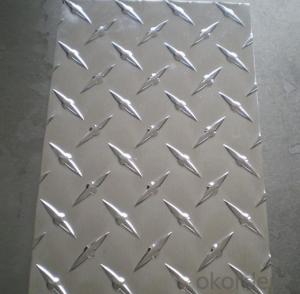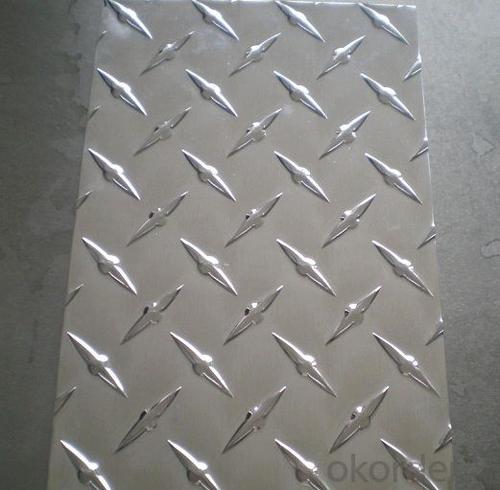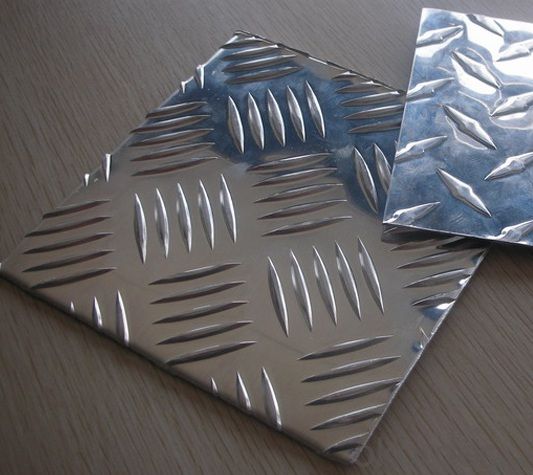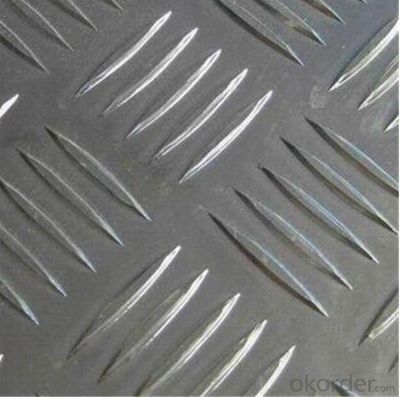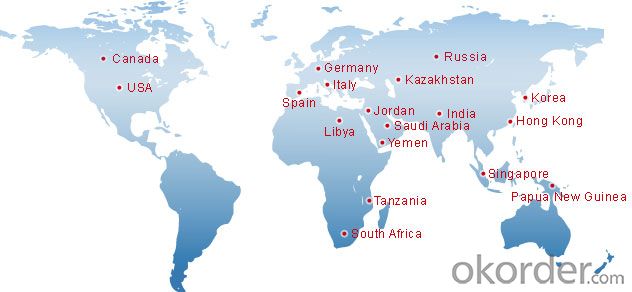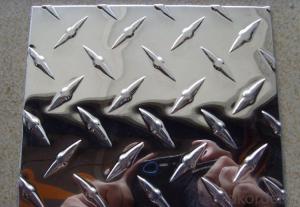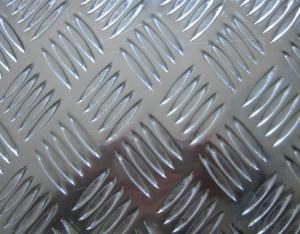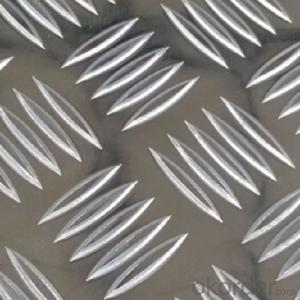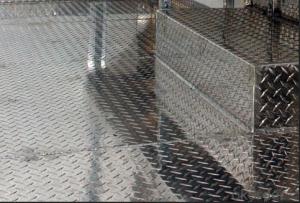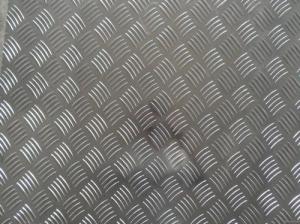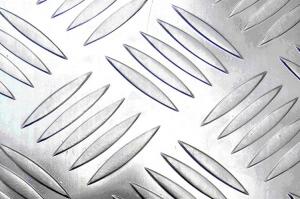Aluminium Stair Checker Plate Used in Buses
- Loading Port:
- Shanghai
- Payment Terms:
- TT OR LC
- Min Order Qty:
- 2.5
- Supply Capability:
- 5000 m.t./month
OKorder Service Pledge
OKorder Financial Service
You Might Also Like
Specification
Aluminium Stair Checker Plate Used in Buses
l Description
1) Alloy: 1050. 1200, 1100,, 3003, 5052, 5754
2) Temper: H111, H112, O, H14, H24, H32
3) Thickness: 0.8mm to 10mm
4) Width: 100mm to 2300mm, Length: up to 11 Meter,
5) Patterns:Two bar,three bar, Five bar and diamond plate
6) Use: Refrigeration floor, Truck floor, flooring, stairs, indoor and outdoor decoration
7) Quality: Mill Finish, Totally free from defects like White Rust, Roll Marks, Edge damage, Camber, Dents, Holes, Break Lines, Scratch
l Packaging & Delivery
Packaging detail: wooden pallets that are suitable for long distance exporting
Delivery detail: 25-30 days after receiving L/C or payment in advance
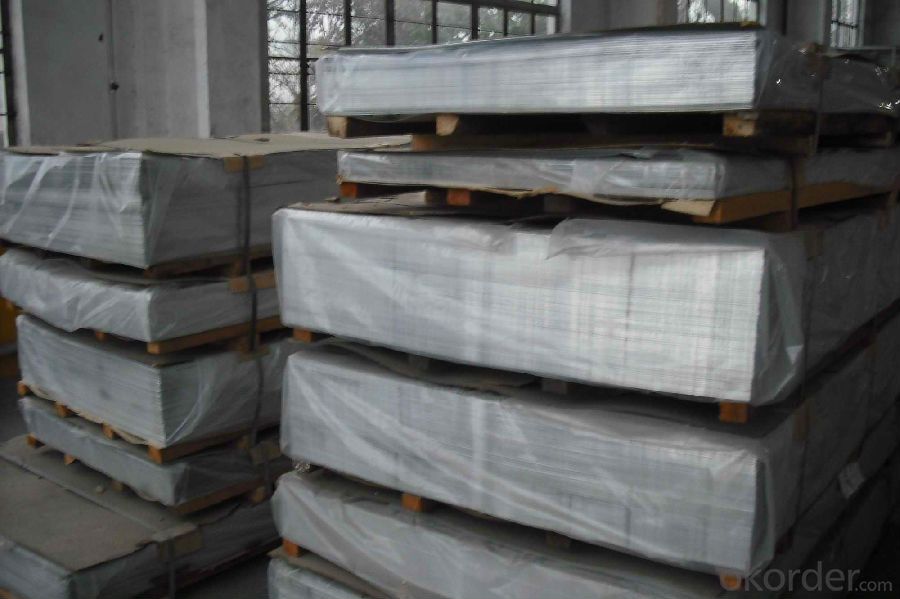
l Company Profile
CNBM International Corporation, China National Building Materials (Group) Corporation, is one of the largest companies in China building material & equipment industry, with 42,800 employees and sales in 2005 of US Dollar 4.395 billion. In 2006, China National Building Material Company Limited was listed on Hong Kong Stock Market with the stock code as 3323. Aluminium checker plate is a popular product in CNBM. With best quality and service, we have won reputation around the world.. |
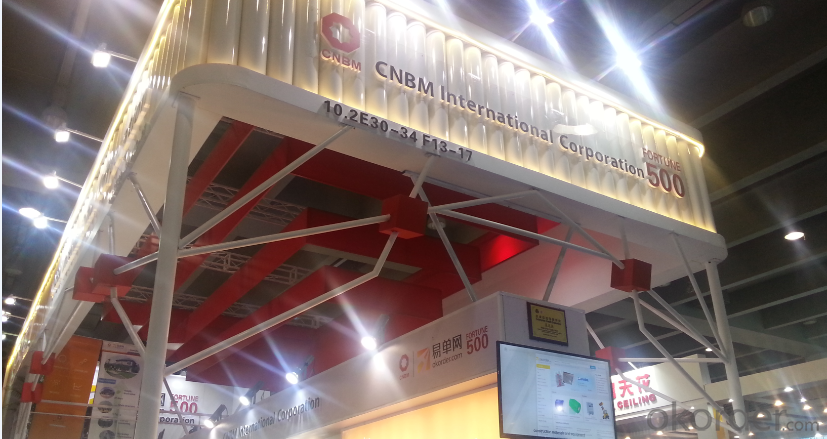
l CNBM World Wide
l Product Images
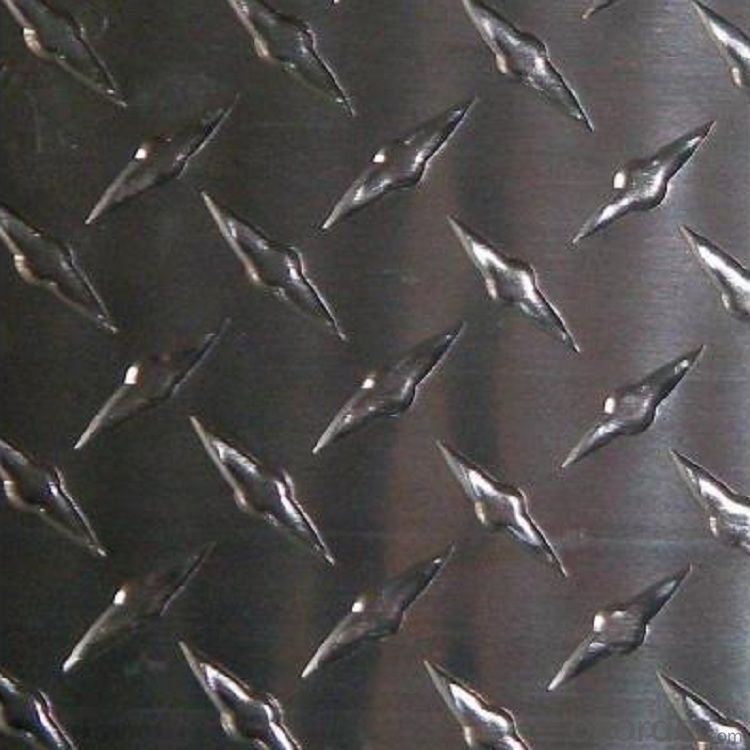
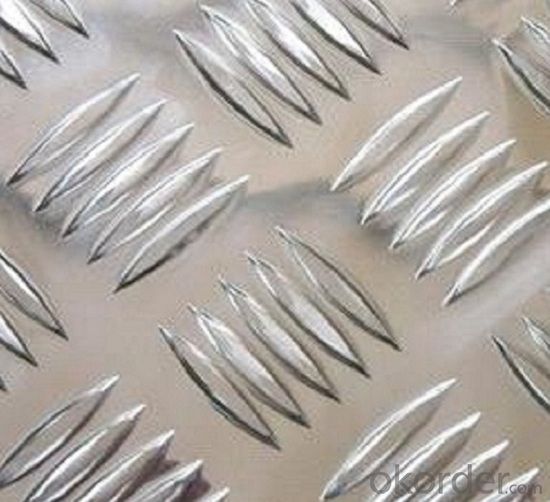
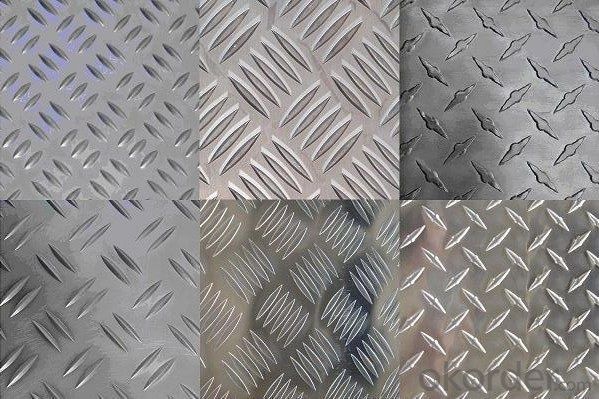
l Certificates
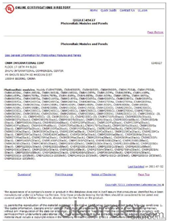
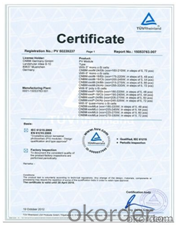
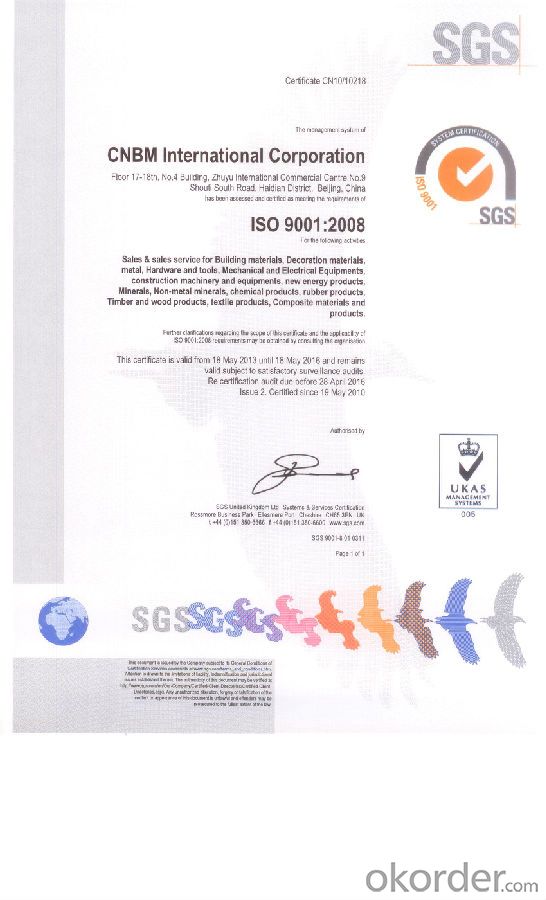
l FAQ
Q: Do you provide free samples?
A: Yes, free samples will be sent to you on freight at destination.
Q: Can I get your latest products catalogue?
A: Yes, it will be sent to you in no time
Q: What is the MOQ?
A: 2.5 tons
Q: What are your payment terms?
A: We accept L/C, T/T.
- Q: how to connect copper pipe and aluminum sheet?
- it depends on the size and requirement, we can use ultrasonic wave rolling welding to connect copper pipe and aluminum sheet.for example, solar energy radiator-fan contains connection of copper pipe and copper sheet, ultrasonic wave rolling welding equipment is used here.ultrasonic wave welding of metals is suitable for the welding of copper to copper, copper to aluminum and aluminum to aluminum.
- Q: Can aluminum sheets be used for HVAC ductwork?
- Yes, aluminum sheets can be used for HVAC ductwork. Aluminum is a popular choice for ductwork due to its lightweight, corrosion-resistant, and durable properties. It is also easy to fabricate and install, making it suitable for various HVAC applications.
- Q: Are the aluminum sheets suitable for manufacturing electrical enclosures?
- Yes, aluminum sheets are suitable for manufacturing electrical enclosures. Aluminum is a highly versatile and widely used material in the manufacturing industry, including for electrical enclosures. It offers several advantages that make it suitable for this application. Firstly, aluminum is lightweight yet strong, making it ideal for constructing enclosures that need to be durable while also being easily transportable and installable. Its strength-to-weight ratio is higher than many other metals, allowing for the creation of sturdy enclosures without adding unnecessary weight. Secondly, aluminum has excellent corrosion resistance. This is crucial for electrical enclosures as they are often placed in various environments where they may be exposed to moisture, humidity, or other corrosive elements. Aluminum's natural oxide layer provides a protective barrier against corrosion, ensuring the longevity and reliability of the enclosures. Additionally, aluminum is a good conductor of electricity, which is another important characteristic for electrical enclosures. It allows for efficient dissipation of heat generated by electrical components, preventing overheating and potential damage to the enclosed devices. Furthermore, aluminum is easily machinable and can be formed into various shapes and sizes. This flexibility allows manufacturers to customize the enclosures according to specific requirements, ensuring a perfect fit for the intended electrical components. Lastly, aluminum is a cost-effective material compared to other metals like stainless steel or copper. It offers a good balance between affordability and performance, making it an attractive choice for manufacturing electrical enclosures. In conclusion, aluminum sheets are indeed suitable for manufacturing electrical enclosures due to their lightweight, strength, corrosion resistance, electrical conductivity, machinability, and cost-effectiveness.
- Q: This question asks about the distinctions between aluminum sheets that are produced domestically versus those that are imported.
- <p>Yes, there can be differences between domestic and imported aluminum sheets. These differences may include quality standards, material composition, thickness, surface finish, and price. Domestic sheets are often produced to meet local standards and regulations, while imported sheets may adhere to different international standards. The manufacturing process and raw materials used can also vary, leading to differences in durability, strength, and workability. Additionally, imported sheets might have different certifications or come from countries with lower production costs, which can affect the price. However, it's important to note that not all imported aluminum sheets are of lower quality; some may be of higher quality or have specific characteristics that are not available domestically.</p>
- Q: Is it possible to utilize aluminum sheets in the construction of furniture?
- <p>Yes, aluminum sheets can be used for furniture. They are lightweight, durable, and resistant to corrosion, making them suitable for various types of furniture such as outdoor furniture, tables, chairs, and shelving. Aluminum's strength and flexibility allow for creative designs and easy maintenance. Additionally, it is a sustainable material that can be recycled, contributing to environmental sustainability.</p>
- Q: Are 101 aluminum sheets suitable for interior design or architectural applications?
- Yes, 101 aluminum sheets are suitable for interior design or architectural applications. 101 aluminum is a common alloy that offers good strength, corrosion resistance, and excellent formability. It can be easily cut, shaped, and fabricated to create various architectural elements such as wall panels, ceilings, furniture, and decorative accents. Additionally, 101 aluminum sheets can be finished with different coatings or textures to enhance their visual appeal and durability. Overall, 101 aluminum sheets are a versatile and cost-effective choice for interior design and architectural applications.
- Q: The question asks if it is possible to recycle used aluminum foil to create new aluminum sheets.
- <p>Yes, recycled aluminum foil can be used to make new aluminum sheets. The process involves collecting and sorting the foil, which is then cleaned and melted down. The molten aluminum is poured into molds or rolled into sheets, creating new aluminum products. This recycling method is not only environmentally friendly but also economically viable as it saves energy compared to producing aluminum from raw materials.</p>
- Q: Can 101 aluminum sheets be customized in terms of size and thickness?
- Yes, 101 aluminum sheets can be customized in terms of size and thickness according to specific requirements and needs.
- Q: Can aluminum sheets be used as a substitute for steel in certain applications?
- Yes, aluminum sheets can be used as a substitute for steel in certain applications. Aluminum is a lightweight and versatile material that offers several advantages over steel. It has a high strength-to-weight ratio, meaning it can provide the same strength as steel while being significantly lighter. This makes aluminum sheets an excellent choice for applications where weight reduction is critical, such as in aerospace, automotive, and transportation industries. Additionally, aluminum is highly resistant to corrosion, which eliminates the need for additional protective coatings or treatments. This property makes aluminum sheets suitable for applications in marine environments or other corrosive conditions. Aluminum sheets also exhibit excellent thermal conductivity, making them ideal for applications that require heat dissipation, such as heat exchangers or radiators. Furthermore, aluminum is more malleable than steel, allowing for easier shaping and forming. This characteristic makes aluminum sheets suitable for applications that require complex or intricate designs. However, it is important to note that aluminum has a lower tensile strength compared to steel. Therefore, in applications that require high load-bearing capacities or structural integrity, steel may still be the preferred choice. In such cases, a careful evaluation of the specific requirements and trade-offs between weight, strength, and cost should be considered before deciding on using aluminum sheets as a substitute for steel.
- Q: Are 101 aluminum sheets suitable for agricultural machinery?
- Yes, 101 aluminum sheets are suitable for agricultural machinery. Aluminum is a versatile and lightweight material that offers several benefits for agricultural machinery. It has excellent corrosion resistance, which is crucial for equipment exposed to various weather conditions and chemicals commonly found in the agricultural industry. The strength-to-weight ratio of aluminum is also advantageous, allowing for increased payload capacity and fuel efficiency. Additionally, aluminum is easily formable, enabling manufacturers to create complex shapes and designs for machinery components. Overall, 101 aluminum sheets provide the durability, corrosion resistance, and versatility required for agricultural machinery.
Send your message to us
Aluminium Stair Checker Plate Used in Buses
- Loading Port:
- Shanghai
- Payment Terms:
- TT OR LC
- Min Order Qty:
- 2.5
- Supply Capability:
- 5000 m.t./month
OKorder Service Pledge
OKorder Financial Service
Similar products
Hot products
Hot Searches
Related keywords
